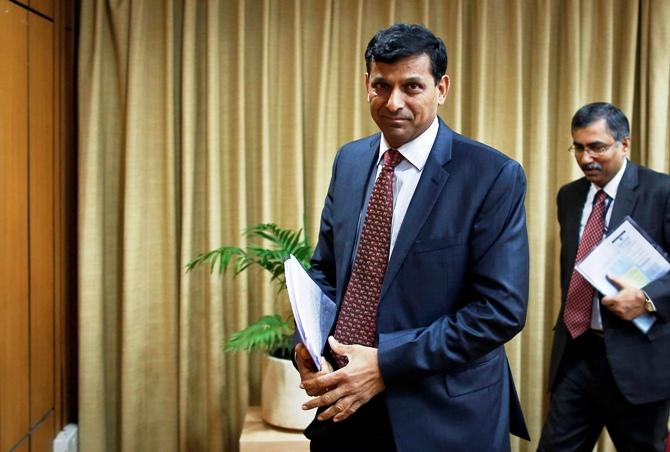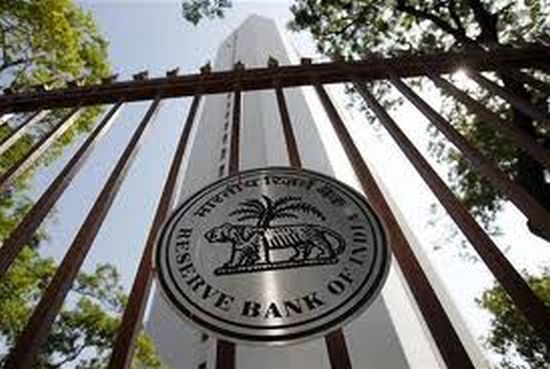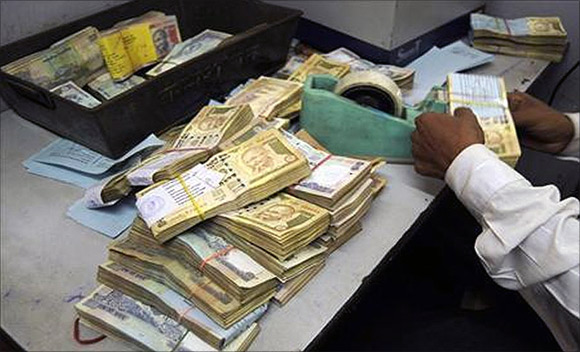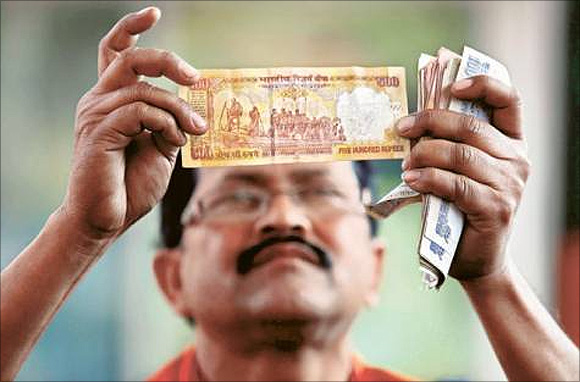Photographs: Danish Siddiqui/Reuters Stanley White in Tokyo
Reserve Bank of India Governor Raghuram Rajan said on Friday he expected to join hands with the country's new government to bring down high inflation.
Rajan, speaking at a seminar in Tokyo, said the new government's plan to curb food inflation seems sensible and that he expected the public's inflation expectations to fall in the future.
Indian bond yields fell on Friday after Rajan's remarks, showing the level of concern about high inflation and investors' anticipation that the RBI will continue efforts to stabilise the economy.
. . .
This is how Rajan plans to fight inflation
Image: Reserve Bank of India.Photographs: Reuters
"There is a sense of conviction about our plan to bring inflation down to 8 per cent this year and 6 per cent next year," Rajan said.
"This information has gotten out to the public.
“The public's inflation expectations have fallen and I think expectations will fall further in the future."
The benchmark 10-year bond yield fell 4 basis points to 8.61 per cent by 0429 GMT following the comments.
Since Rajan took the helm of the RBI in September, the RBI has raised interest rates three times by a total of three-quarters of a per centage point in an attempt to curb persistently high inflation.
. . .
This is how Rajan plans to fight inflation
Image: India's current account deficit, which has caused concern about economic imbalances, could fall to 2 to 2.5 per cent of gross domestic product in medium term.Photographs: Reuters
Consumer price inflation picked up in April, while wholesale inflation moderated but remained at elevated levels.
Rajan is a former International Monetary Fund chief economist and is widely viewed as India's most capable technocrat, winning the respect of investors for his handling of a currency crisis that hit Asia's third-largest economy last year.
Rajan said he was worried about non-performing assets in India's banking sector but wanted to work with the new government to solve this problem quickly.
India's current account deficit, which has caused concern about economic imbalances, could fall to 2 to 2.5 per cent of gross domestic product in medium term, he also said.
. . .
This is how Rajan plans to fight inflation
Image: Inflation is now running at double the RBI's longer-term 4 per cent target.Photographs: Reuters
Narendra Modi was sworn in as India's prime minister this week after a sweeping election victory with a mandate to deliver better governance and economic stability.
There are concerns Rajan could come under pressure from the new government to take a less hawkish stance on inflation to revive economic growth and create more jobs.
Inflation is now running at double the RBI's longer-term 4 per cent target, at a time when economic growth has fallen to its slowest in a decade.
Economic policy is arguably the most important area for India's new government as it seeks to drag the country out of its economic torpor and create enough jobs for the 10 million young people who join the workforce each year.
(Reporting by Stanley White)






article